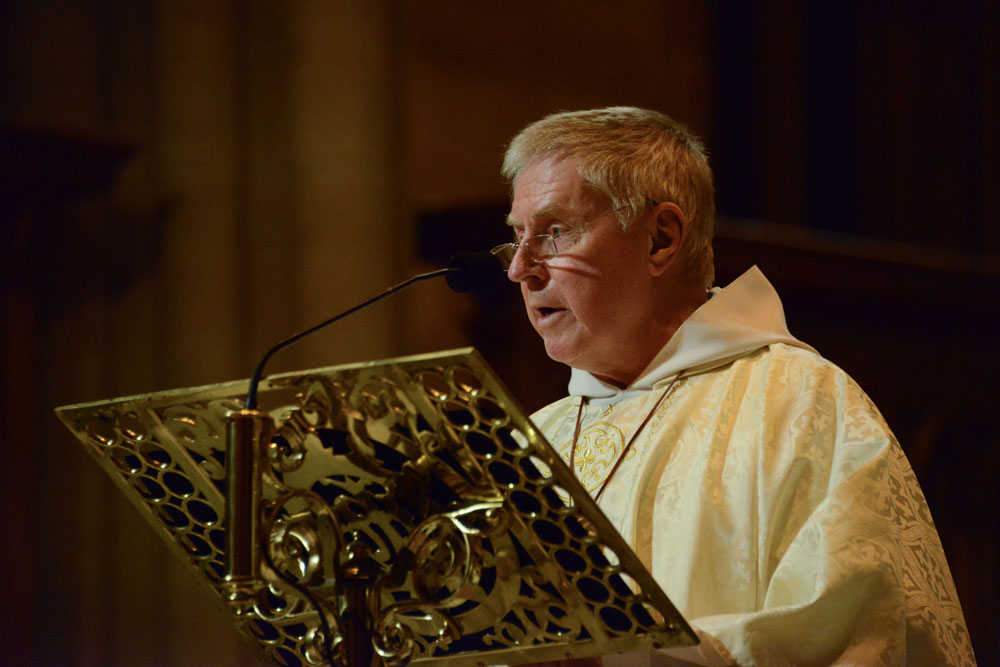Homily urges Plenary Council members to seek unity
July 7, 2022

As Wednesday’s proceedings came to a close, Members of the Fifth Plenary Council of Australia were invited to remember the “saving unity” to which the Church is called.
The Mass for the Church was offered at St Mary’s Cathedral, after a day of further discernment following the results of the second rounds of voting. Details were published earlier in the day.
The Mass’ principal celebrant, Archbishop Mark Coleridge of Brisbane, opened by saying that at the end of such an “extraordinary” day, it was right to stand before the living God, who breathes life into “the chaos of the Church, and certainly the chaos of our sin”.
The homily was given by Fr Dominic Steele Hartmann OCSO (pictured), the abbot of Tarrawarra Abbey in Victoria. He emphasised that the unity of the Church is found in Christ.
If people are joined together in Christ, he said, they enter into the “saving unity” of the Church.
“We are called to unity, unity with Christ through our union with one another, and we are called to be united; we need to be one – this is the way of salvation,” Fr Hartman said.
This unity, he warned, does not mean “uniformity”.
“Our differences are a gift,” he said, “a gift that we in our Australian Church are called to embrace.
“We are not all called to be the same, but we are all called through the particular gifts given to each to build each other up into the one Body of Christ, the Church.”
If we are looking for sanctification, he said, we should look to the “gift given us to carry out our ministry”.
“This is the way of holiness,” he said, “and the way to holiness.”
The love that people have for the Church, and for the unity of the Church, is a sign of “Christ’s Spirit come upon us”, and “we need to let it guide all that we do”.
On Thursday, the Council will resume work on other sections of its agenda. The opening session on Thursday will be livestreamed from 8.30am AEST.
Find out more about the Plenary Council and follow the second assembly at:
Visit our diocesan Plenary Council page below for further information, news, and local resources as they are released:
Source: ACBC media blog
Go back


